Books
Books
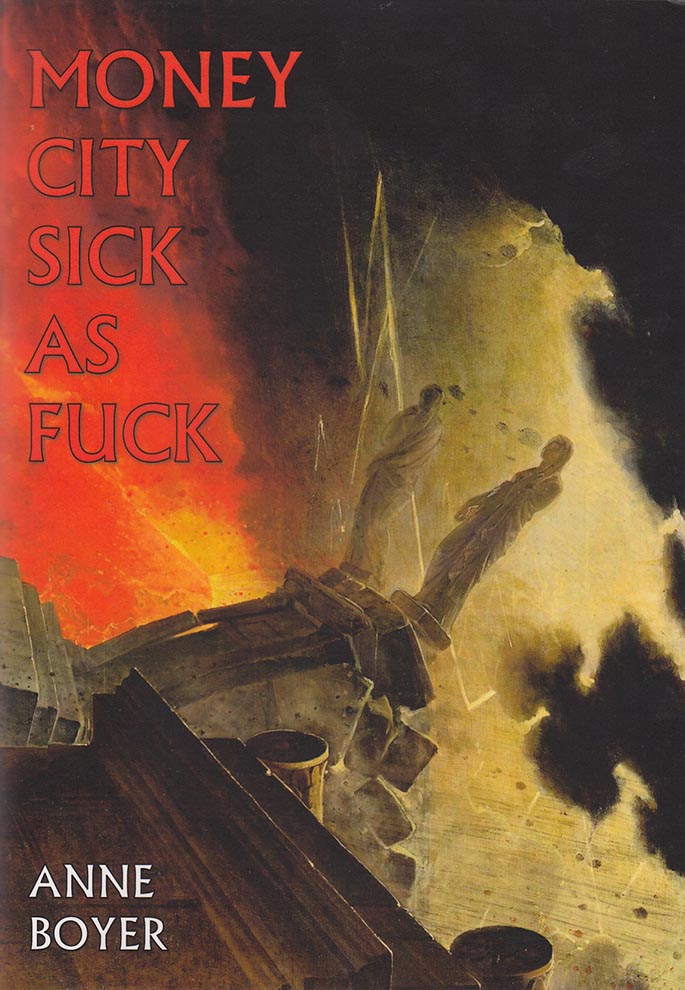
Money City Sick as Fuck
Selected from a sequence of 100 poems written on a long day in the summer of 2013, Anne Boyer's Money City Sick as Fuck imagines writing a poem "in a confederacy of exception [...] called 'wages for tenderness and nothing else'". Situated between Pompeii and Olympus, at "Texaco in ruins" or the amusement park, in a bar called Lethe, at the saddest prom in history, taking "every odd route", these poems passionately survey and survive the streets and jails of the modern-day polis,"sunbathing in Atlantis", oracles IRL.
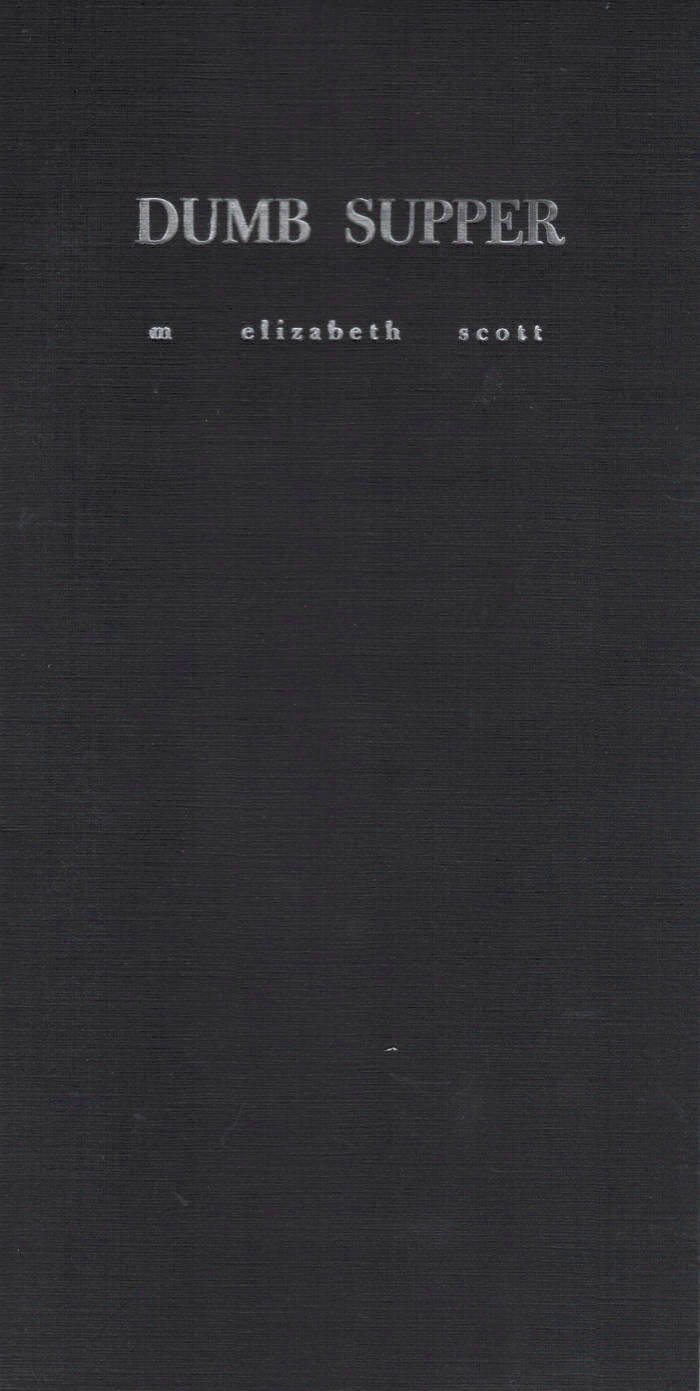
Dumb Supper
40 pages, b&w, saddle-stitch binding.
Printed on alternating paper & vellum.
Features graphics by Nat Marcus and 14 poems on loss by M. Elizabeth Scott.

The Xenotext Book
Book I of The Xenotext constitutes a kind of "demonic grimoire," providing a scientific framework for the project with a series of poems, texts, and illustrations. A Virgilian welcome to the Inferno, Book I is the "orphic" volume in a diptych, addressing the pastoral heritage of poets, who have sought to supplant nature in both beauty and terror. The book sets the conceptual groundwork for the second volume, which will document the experiment itself. The Xenotext is experimental poetry in the truest sense of the term.

A Handbook of Disappointed Fate
A HANDBOOK OF DISAPPOINTED FATE highlights a decade of Anne Boyer's interrogative writing on poetry, death, love, lambs, and other impossible questions.
"The essays in this book model the poet’s no: they refuse to make things easy when they aren’t, preserving the messy difficulty of cancer, of poverty, of staying alive under capitalism." - Julia Bosson

Still Life 4
STILL LIFE is an online and printed zine about relationships and configurations in which one person is still while others are not. Or where one person is passive and others are active. It’s about how we put ourselves in other people’s hands. Or how we are put in other people’s hands. It’s about care and power and vulnerability and agency. And other things not so clearly named. It’s about the different kinds of knowledge that people have about their own and other people’s bodies. And the kind of philosophical and political understandings woven into that knowledge.

Persona
PERSONA is the second magazine in a series in response to a series of meetings of female artists entitled "A conversation to know if there is a conversation to be had" held in New York, Amsterdam, Berlin and London in 2010-11. The first journal LABOUR, addressed the question of women's work, and used the lens of the feminist critique of unpaid labour to look at the contemporary condition of the artist. PERSONA as a jumping off point looks at the condition of self-presentation for the contemporary artist, but in an expansive manner encompasses discussions on embarrassment, refusal, interiority and identification.
Contributors: Rita McBride, Celine Condorelli, Avery Gordon, Isla Leaver-Yap, Eva Kenny, Melissa Gordon, Marina Vishmidt, Josephine Pryde, Sabeth Buchmann, Chris Kraus, Audrey Reynolds, Elisabeth Subrin, Alison Carr, Karolin Meunier, Sue Tate, Nadia Hebson, Jen Liu, Da
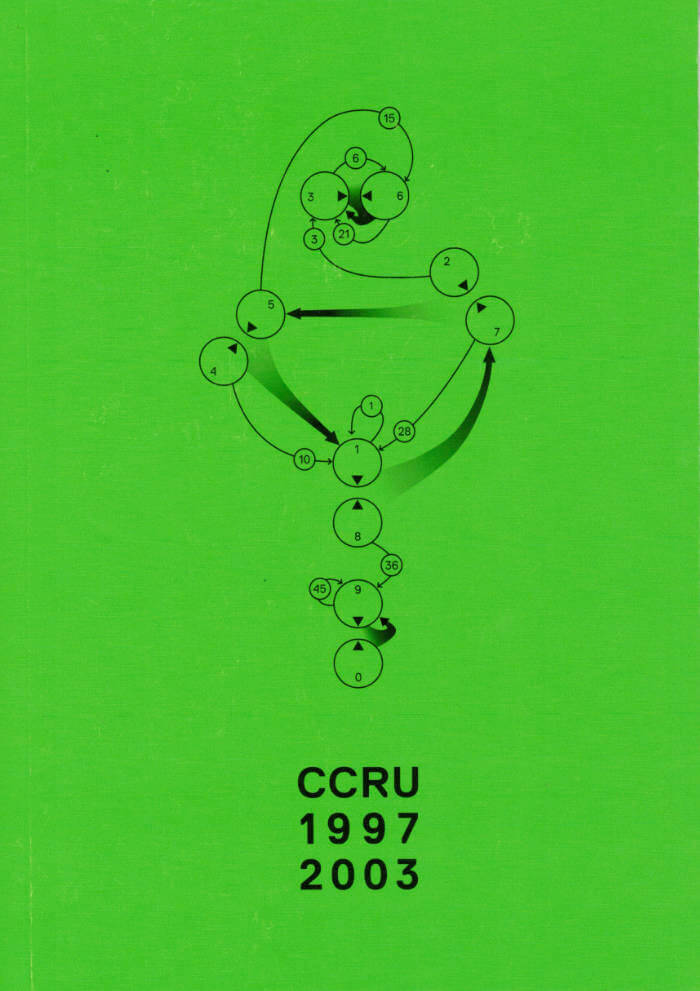
CCRU writings 1997-2003
From before the beginning (which was also, according to them, already the end), the adepts of the Architectonic Order of the Eschaton have worked tirelessly to secure the past, present, and future against the incursions of Neolemurian time-sorcery, eliminating all polytemporal activity, stitching up the future, sealing every breach and covering every track. According to the AOE, the Ccru ‘does not, has not, and will never exist’. And yet….
The texts collected here document the Ccru’s perilous efforts to catalogue the traces of Lemurian occulture, bringing together the scattered accounts of those who had stumbled upon lagooned relics of nonhuman intelligence—a project that led ultimately to the recovery of the Numogram and the reconstruction of the principles of Lemurian time-sorcery—before disintegrating into collective schizophrenia and two decades of absolute obscurity.
Meshing together fiction, number theory, voodoo, philosophy, anthropology, palate tectonics, information science, semiotics, geotraumatics, occultism, and other nameless knowledges, in these pages the incomplete evidence gathered by explorers including Burroughs, Blavatsky, Lovecraft, Jung, Barker, J.G. Ballard, William Gibson, and Octavia Butler, but also the testimony of more obscure luminaries such as Echidna Stillwell, Oskar Sarkon, and Madame Centauri, are clarified and subjected to systematic investigation, comparison, and assessment so as to gauge the real stakes of the Time-War still raging behind the collapsing façade of reality.
One of the most compelling and unnerving collective research enterprises to have surfaced in the twentieth century, the real pertinence of the Ccru’s work is only now beginning to reveal itself to an unbelieving world. To plunge into the tangled mesh of these conspiracies, weird tales, numerical plagues, and suggestive coincidences is to test your sense of reality beyond the limits of reasonable tolerance—to enter the sphere of unbelief, where demonic currents prowl, where fictions make themselves real. Hyperstition.
Cybernetic Culture Research Unit was a name on a door in the Philosophy Department of Warwick University, UK, during the late 1990s. It was a rogue unit, blurring the borders between traditional scholarship, cyberpunk sci-fi, and music journalism. Its frenzied interdisciplinary activity, including the Virtual Futures and Virotechnology conferences and the journal Abstract Culture, disturbed Warwick's Philosophy Department, resulting in the termination of the unit.
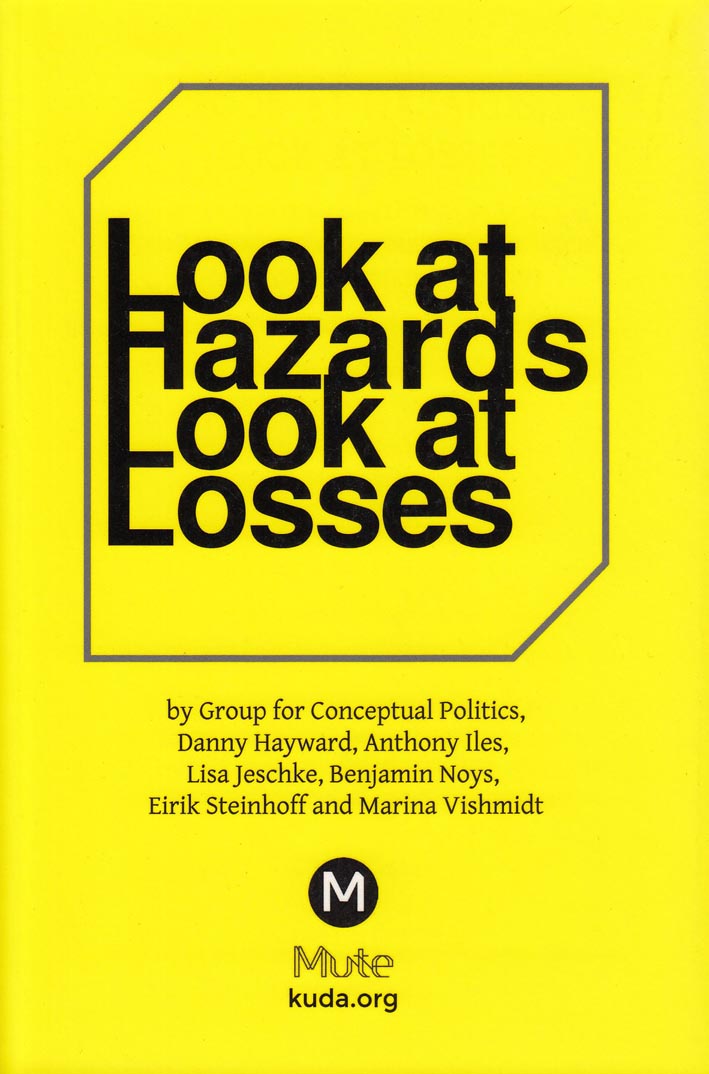
Look at Hazards Look at Losses
Look at Hazards, Look at Losses developed out of a series of conversations, exchanges and visits between kuda.org, Anthony Iles and Marina Vishmidt over 2015-2017 through which different approaches to common problems of cultural production in early-21st century Europe and its peripheries were debated and conceptually probed. Setting out from Theodor W. Adorno’s concept of ‘the aesthetic relations of production’ these discussions proceeded to explore problems bearing upon organisation in small groups in the field of culture, philosophical idealism and materialism, poetry, error and crisis.
The anthology assembled reflects these concerns through engagement with the writing of others who have helped orientate us through these discussions. The book which is the outcome consists of seven original contributions by poets and theorists which attempt to move toward new political interventions in culture and beyond ‘crisis as a way of life’.
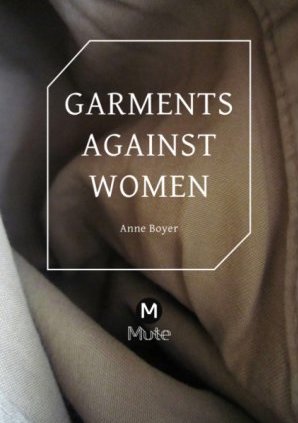
Garments Against Women
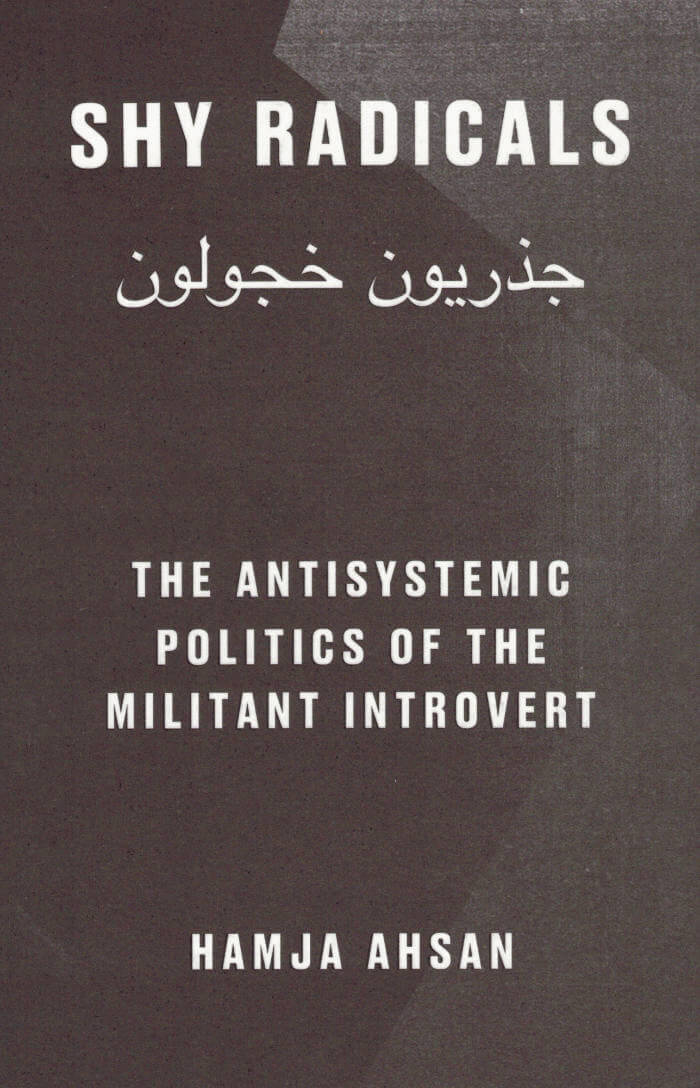
Shy Radicals
Drawing together communiqués, covert interviews, oral and underground history of introvert struggles (Introfada), here for the first time is a detailed documentation of the political demands of shy people.
Radicalised against the imperial domination of globalised PR projectionism, extrovert poise and loudness, the Shy Radicals and their guerrilla wing the Shy Underground are a vanguard movement intent on trans-rupting consensus extrovert-supremacist politics and assertiveness culture of the twenty first century. The movement aims to establish an independent homeland – Aspergistan, a utopian state for introverted people, run according to Shyria Law and underpinned by Pan-Shyist ideology, protecting the rights of the oppressed quiet and shy people.
Shy Radicals are the Black Panther Party of the introvert class, and this anti-systemic manifesto is a quiet and thoughtful polemic, a satire that uses anti-colonial theory to build a critique of dominant culture and the rising tide of Islamophobia.
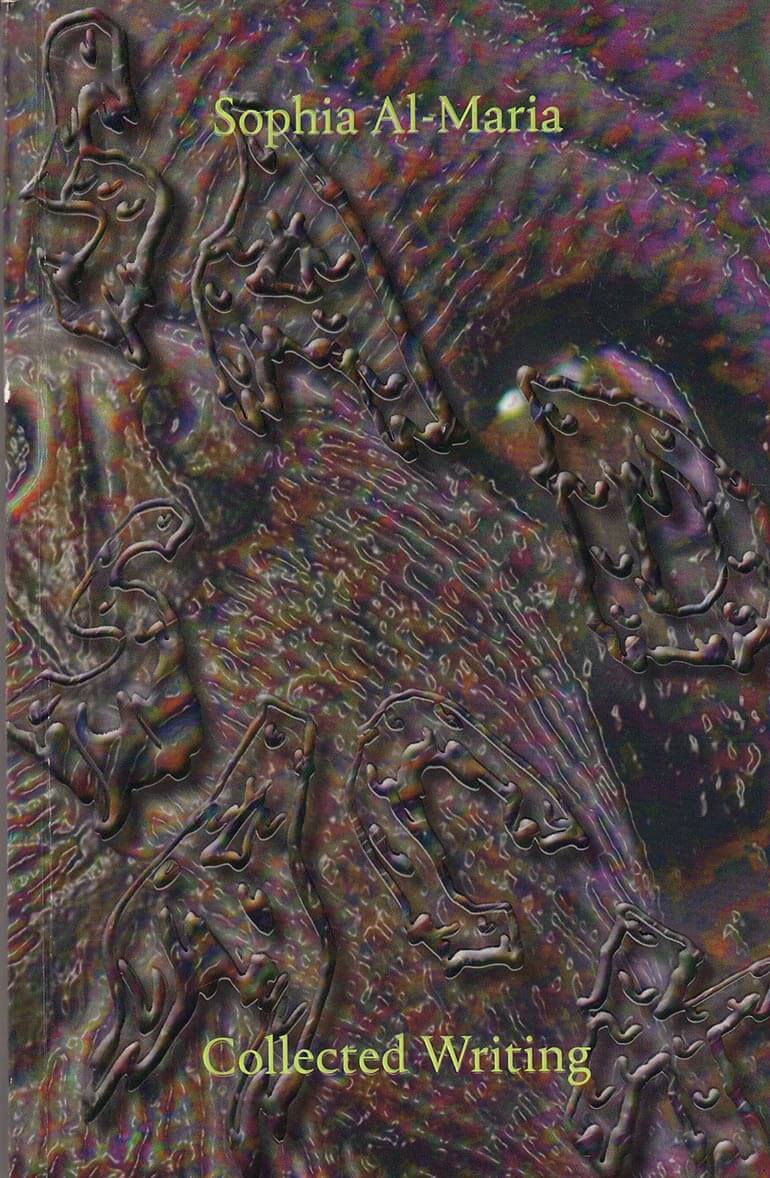
Sad Sack
Sad Sack is a book of collected writing by Sophia Al-Maria, taking feminist inspiration from Ursula K. Le Guin’s 1986 essay ‘The Carrier Bag Theory of Fiction’; opposing ‘the linear, progressive, Time’s-(killing)-arrow mode of the Techno-Heroic.’ Encompassing more than a decade of work, Sad Sack tracks Al-Maria’s speculative journey as a writer, from the first seed of her ‘premature’ memoir, through the coining and subsequent critique of ‘Gulf Futurism’, towards experiments in gathering, containing, welling up and sucking dry.
For me this book is a bag... Like any single-use carrier bag – I disapprove. It shouldn’t exist, it contributes to pollution, it should be banned... And yet, in spite of the fact I know this book may be a waste product... I’m still writing, redacting, expanding... I’m still waiting, wasting, wanting. According to Ursula, ‘It is a human thing to do to put something you want, because it’s useful, edible, or beautiful, into a bag.' – Sophia Al-Maria

All the Stories
They recite all the stories of the world in a loud voice. When they're done, all the stories, all time and all places will have passed through their lips...’ With the minimum of instructions and a restricted format of four lines, Dora García’s collaborative and participatory project has now collected over 2,500 stories. Ranging from mundane to the extraordinary, these four line vignettes reveal the shared fears and fantasies of the contributors, the pervasiveness of popular culture and the possibilities of the imagination.

Journal for music, politics and poetics #2
Developed over the past year and a half, Cesura//Acceso Issue 2 contains new writing by Paul Abbott, Hannah Black, Nathaniel Mackey, Larne Abse Gogarty, Verity Spott, Irene Revell with Annea Lockwood, Paul Rekret, and Federica Frabetti with Mark Fell.
Issue 2, in response to the open call Corrupting Desires! Technique, Performance, and Control Cesura present a series of texts which deal with the problems of constraint, restraint and domination in relation to musical production, performance and reception. With contributions from Abject Subject Ensemble (Mattin, Farahnaz Hatam, Sacha Kahir, and Colin Hacklander), Naroder Bourniki, ESW, Danny Hayward, Sophie Hoyle, Sacha Kahir, Pil and Galia Kollectiv, Claire Potter, Byron Peters and Tyler Coburn, David Morris and Kim O'Neil.
Cesura was formed in 2014 as a place to think through the politics of music. The first issue was published in 2014. They have since held workshops, talks, radio shows, and put on gigs exploring the politics of music, poetry and performance.

To Become Two
To Become Two: Propositions for Feminist Collective Practice offers a narrative of artist Alex Martinis Roe’s research into a genealogy of feminist political practices in Europe and Australia from the seventies until today.
These practices include those of the Milan Women’s Bookstore co-operative; Psychanalyse et Politique, Paris; Gender Studies (formerly Women’s Studies) at Utrecht University; a network in Sydney including people involved in the Sydney Filmmakers Co-operative, Feminist Film Workers, Working Papers Collective, and the Department of General Philosophy at Sydney University; and Duoda – Women’s Research Centre and Ca la Dona, a women’s documentation centre and encounter space in Barcelona.
Drawing from their practices and experiences, Martinis Roe’s research forms a proposal for a transgenerational approach to feminist politics. This is further developed as a practical handbook of twenty new propositions for feminist collective practice, which were formed in collaboration with a network of contributors through experiments with these historical practices.

A Flower is Speaking to a dog
A set of generative texts following the genetic sequencing of DNA as the underlying structure or score for its characters.
Graphic design by Gerard Herman
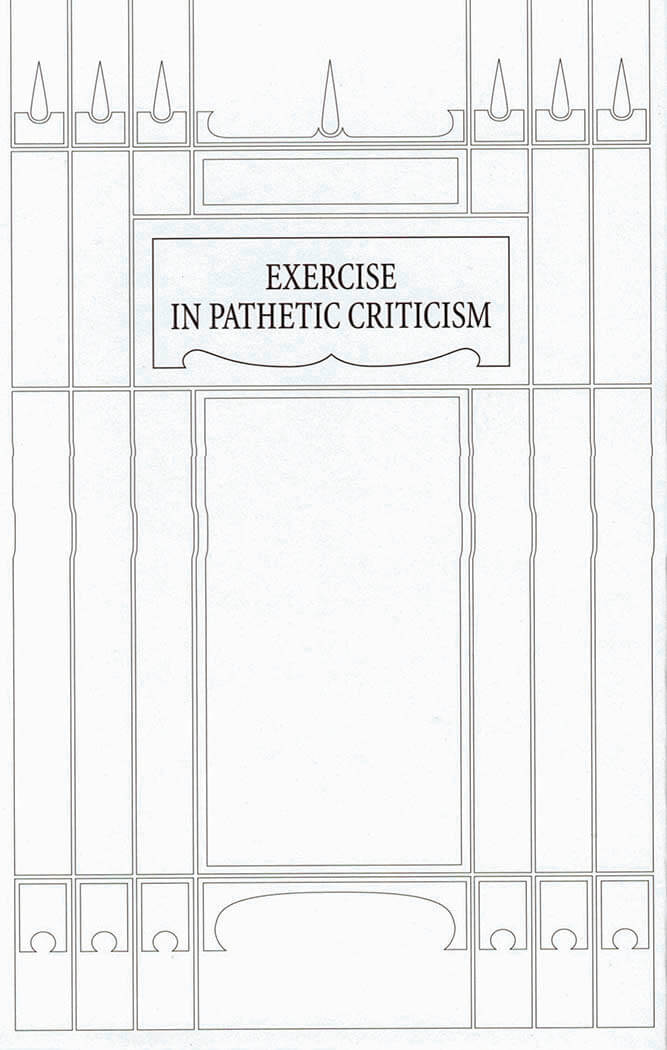
Exercise in pathetic criticism
Kate Briggs is the translator of two volumes of Roland Barthes’s lecture and seminar notes at the Collège de France: The Preparation of the Novel (Columbia University Press, 2010) and How to Live Together: Novelistic Simulations of Some Everyday Spaces, due to be published in 2012. Exercise in Pathetic Criticism is the first in a projected series of experiments in literary criticism.

Being Together Precedes Being
Being Together Precedes Being offers a text book for the project “The Kids Want Communism,” which was initiated towards the 99th anniversary of the Soviet Revolution of October 1917 as a series of exhibitions, symposiums and conferences, screening programs, publications and a summer camp. In this textbook, communism does not merely describe an “us versus them” relation, but also offers that we are becoming the future. This trajectory of communism runs parallel to us at every single moment and its guiding principle is that being together precedes being.

Sowing Somankidi Coura
Sowing Somankidi Coura. A Generative Archive is a long-term research endeavor by Raphaël Grisey in collaboration with Bouba Touré around the permacultures and archives of Somankidi Coura, a self-organized cooperative along the Senegal river founded by a group of former African migrant workers and activists in France in 1977 after the Sahel drought of 1973.
The book assembles texts, voices, images, takes, retakes and research around the Pan-African history of the cooperative of Somankidi Coura, the liberation struggles of migrant workers and farmers in France and West Africa. It enables thinking a politics of decolonisation for agriculture, migration, care, soil and the archive.
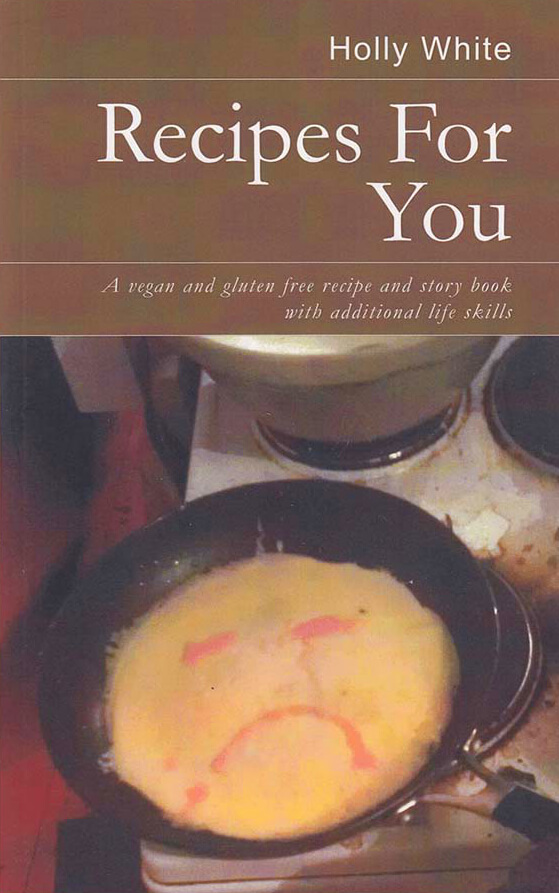
Recipes For You
Recipes for you: A vegan and gluten free recipe and story book with additional life skills is a new cookbook and survival guide by artist Holly White. Rather than selling an aspiration, the book looks honestly at our conflicted relationship with consumption. White intersperses recipes and self-sufficiency notes with prose, as the contributions collected on her food blog (http://holly-white-food.tumblr.com/) spark imagined and remembered references and memories.

Scripts
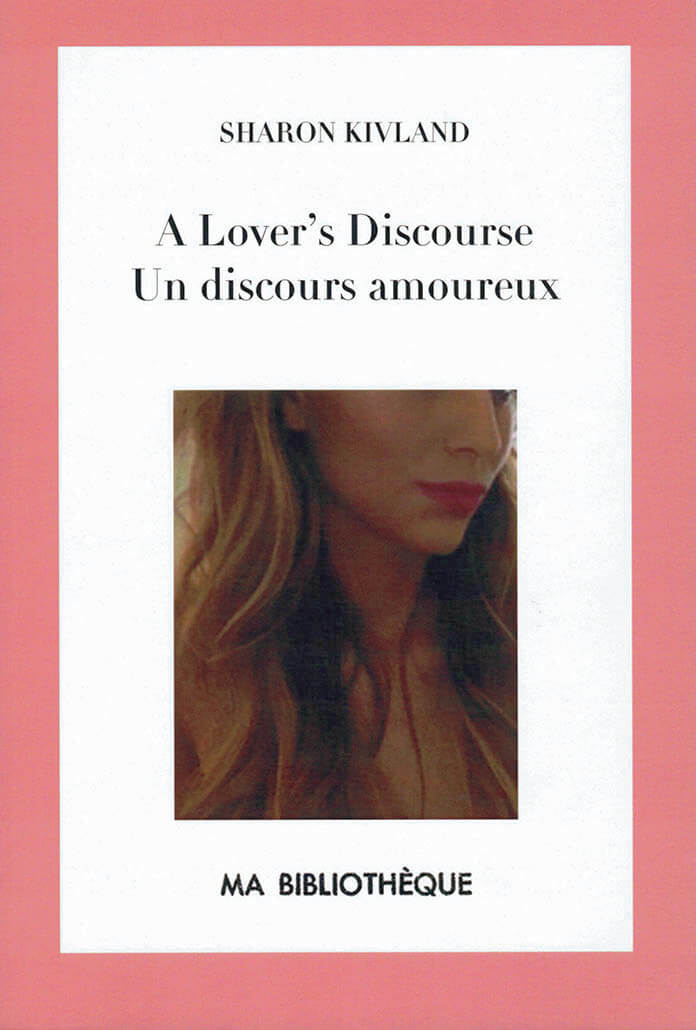
A Lover's Discourse
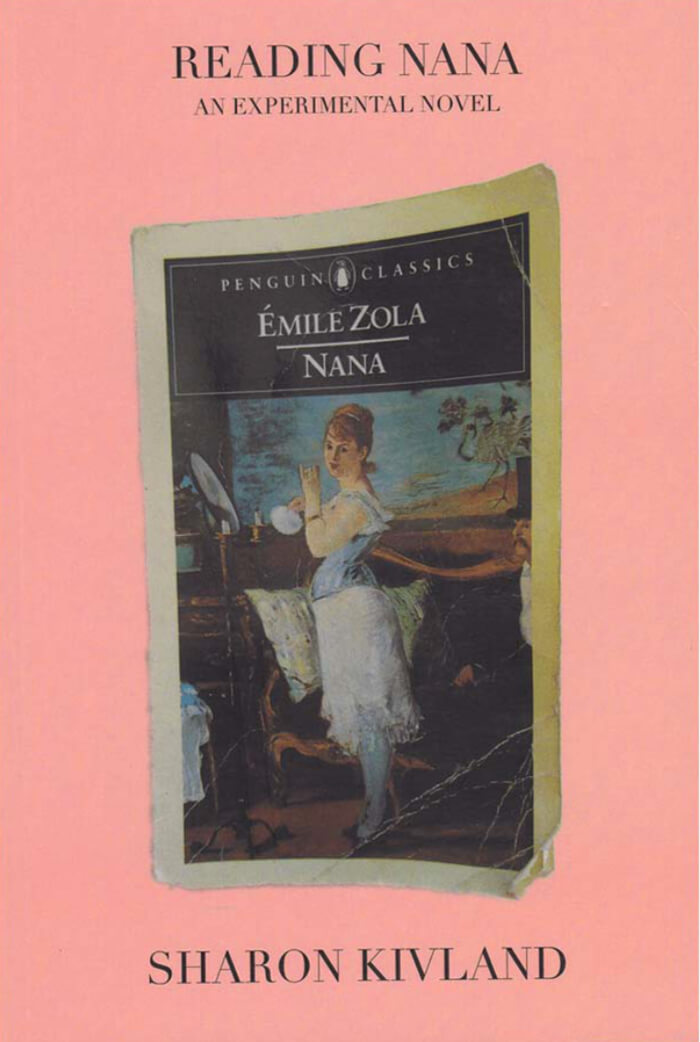
Reading Nana
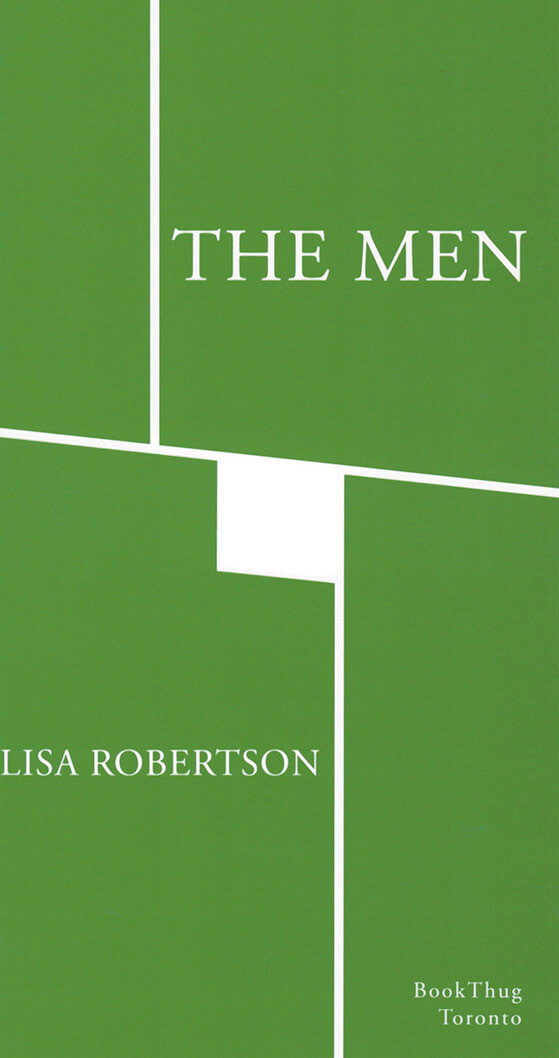
The Men
The Men explores a territory between the poet and a lyric lineage among men. Following a tradition that includes Petrarch's Sonnets, Dante's work on the vernacular, Montaigne, and even Kant, Robertson is compelled towards the construction of the textual subjectivity these authors convey-a subjectivity that honors all the ambivalence, doubt and tenderness of the human. Yet she remains angered by the structure of gender these works advance, and it is this troubled texture of identity that she examines in The Men.
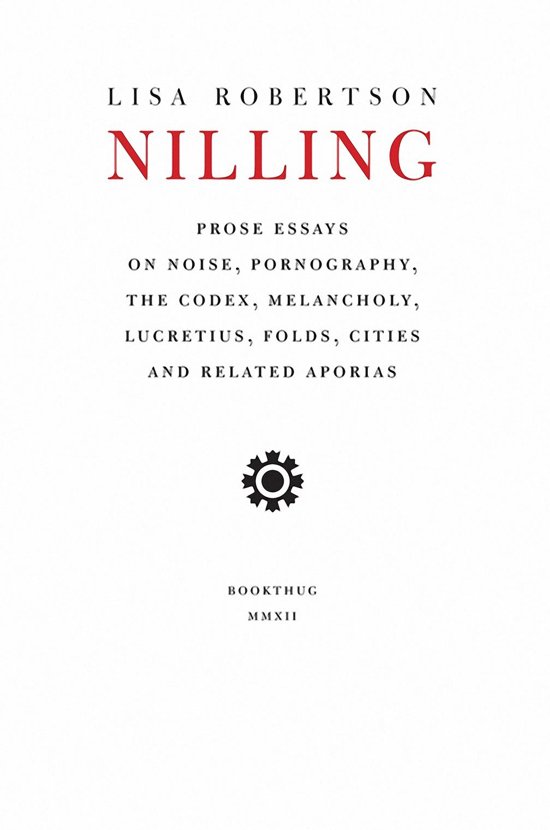
Nilling
NILLING: PROSE is a sequence of five loosely linked prose essays about noise, pornography, the codex, melancholy, Lucretius, folds, cities and related aporias: in short, these are essays on reading.
"I have tried to make a sketch or a model in several dimensions of the potency of Arendt's idea of invisibility, the necessary inconspicuousness of thinking and reading, and the ambivalently joyous and knotted agency to be found there. Just beneath the surface of the phonemes, a gendered name rhythmically explodes into a founding variousness. And then the strictures of the text assert again themselves. I want to claim for this inconspicuousness a transformational agency that runs counter to the teleology of readerly intention. Syllables might call to gods who do and don't exist. That is, they appear in the text's absences and densities as a motile graphic and phonemic force that abnegates its own necessity. Overwhelmingly in my submission to reading's supple snare, I feel love."